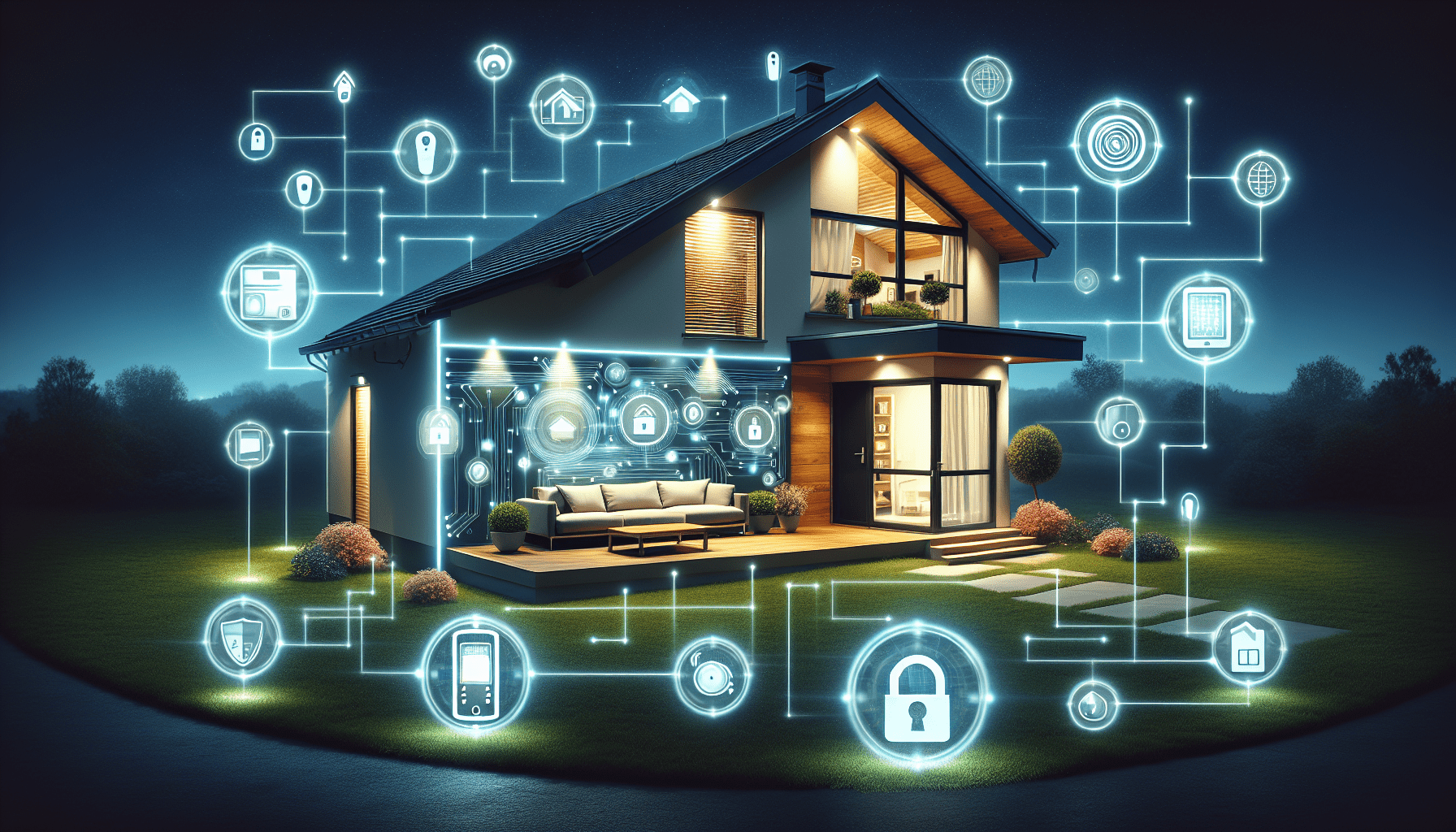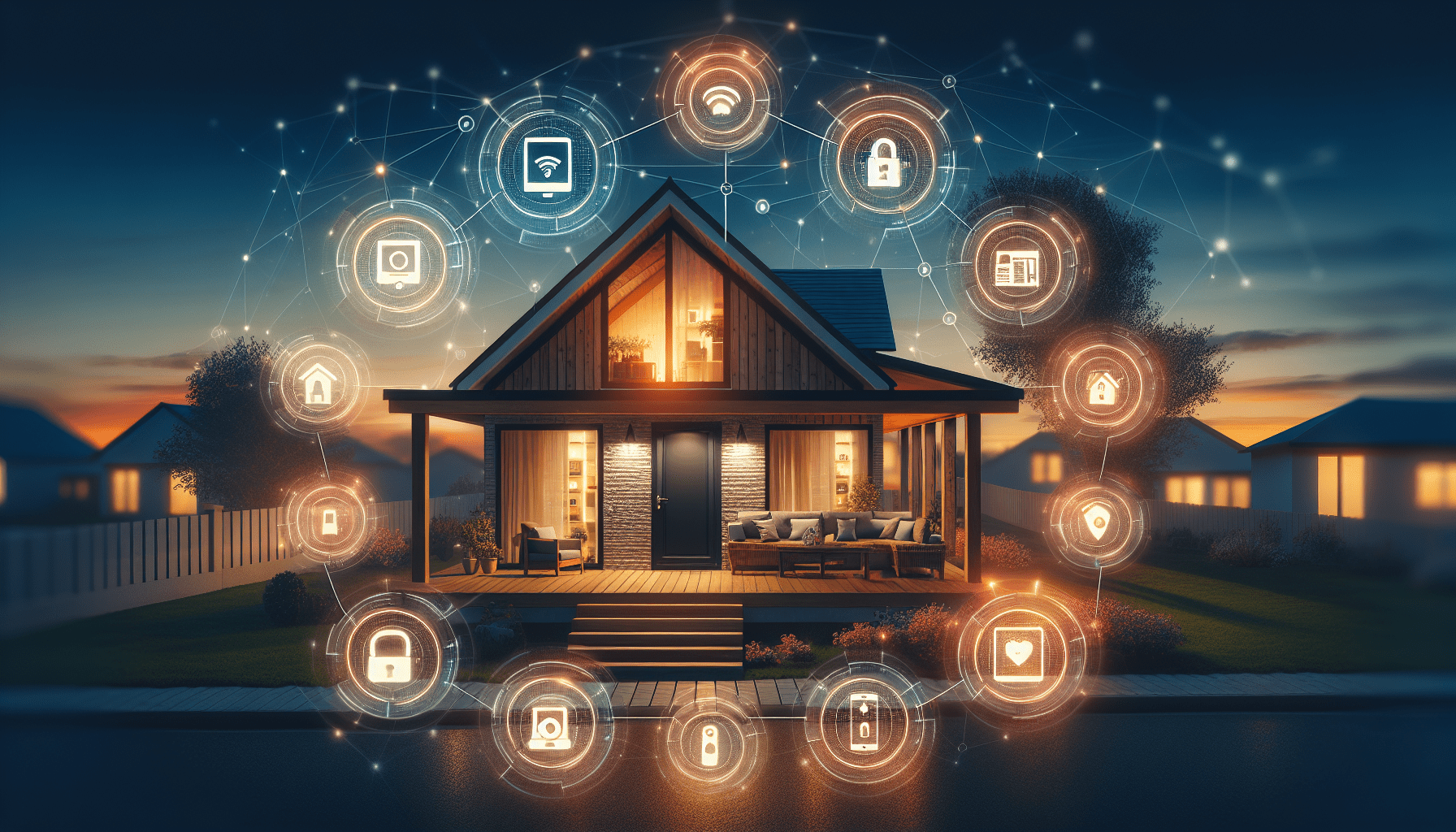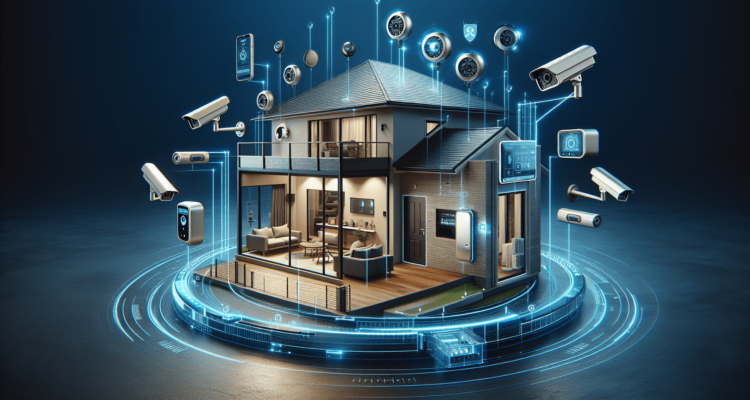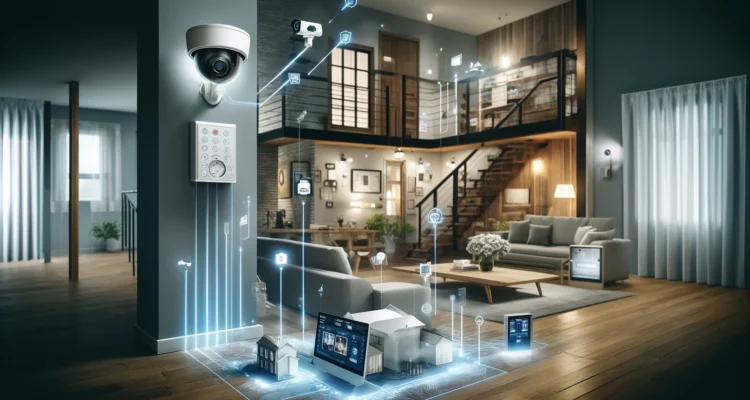Home Security Assessment
Imagine having a professional walk through each room of your home, scrutinizing every possible vulnerability and offering tailored solutions to lock in your peace of mind. From reinforcing doors and windows to integrating cutting-edge smart technology that complements your lifestyle, this audit is about more than just security—it’s about creating a haven where your family can thrive without fear. As you lean into the expertise of seasoned inspectors, you’ll discover innovative ways to protect your loved ones and valuables, proactive strategies to prevent future risks, and gain empowering insights on maintaining a safe and serene home environment. Step into a world where your safety and well-being are prioritized, and let the journey toward comprehensive home protection begin.

Understanding the Importance of a Residential Security Audit
Defining a home security audit
A home security audit is your first step towards safeguarding your abode from potential threats. It’s a comprehensive evaluation that scrutinizes each aspect of your home’s security, highlighting vulnerabilities and offering solutions to fortify your living space. Think of it as a health check-up, but for the safety of your residence.
The role of a security audit in ensuring family and property safety
The ultimate goal of a security audit is to protect your most precious assets – your family and your property. By identifying weak spots in your home’s defense, a security audit enables you to take proactive steps in preventing unauthorized access or potential hazards. It’s about adding layers of protection that give you and your family the peace of mind you deserve.
Comparing reactive vs. proactive security measures
Your approach to home security can fall into two categories: reactive or proactive. Reactive measures involve responding to a security breach after it occurs, whereas proactive measures are about preventing those breaches in the first place. A residential security audit embodies the essence of being proactive. It’s about foreseeing potential risks and mitigating them before they can cause harm, rather than dealing with the aftermath of a breach.
Assessing External Threats and Vulnerabilities
Identifying common external threats to residential properties
Common external threats include burglaries, vandalism, and environmental damages. These are the unfortunate realities that many homeowners face. Acknowledging these threats is the first step in defending against them.
Conducting a perimeter inspection
A perimeter inspection involves walking around your property to assess its vulnerability to these threats. Look for potential entry points, weak fences, dark areas that need lighting, and any spots that provide cover for would-be intruders. This is a crucial component of your security audit as it sets the stage for implementing protective measures.
Evaluating the security of doors and windows
Doors and windows are the most common entry points for burglars. Evaluating their security involves checking the strength of the door frames, the quality of the locks, and the integrity of the window panes. Consider upgrading to reinforced doors and window locks if necessary, to enhance your home’s defense.
Internal Security Measures
The importance of internal security systems and alarms
Equipping your home with internal security systems and alarms is a formidable deterrent against intruders. Systems like motion detectors, glass break sensors, and smoke alarms add layers of protection, significantly reducing the risk of burglary and other dangers.
Assessing the effectiveness of locks and safes
Your valuables should be kept in a secure location, such as a safe, to protect them from theft or fire damage. Assess the effectiveness of your locks and the quality of your safe. A high-quality, tamper-proof safe can be the last line of defense for your most precious belongings.
Role of interior lighting in deterring crime
Interior lighting plays a subtle yet vital role in deterring crime. Lights suggest occupancy, which can keep intruders at bay. Timers and smart lighting systems that simulate presence even when you’re away add an extra layer of security.
Technological Advances in Home Security
Overview of smart security systems and devices
The advent of smart security systems has revolutionized home protection. These systems integrate high-definition cameras, smart locks, motion sensors, and alarms that you can control and monitor remotely via your mobile device.
Integration of security systems with mobile devices
The ability to monitor your home in real-time from your smartphone is a game-changer. You receive instant alerts of any suspicious activity, allowing you to respond promptly, whether that’s contacting the authorities or turning lights on to deter potential threats.
The future of home security technology
Looking ahead, home security technology will continue to evolve, becoming more sophisticated and integrated into our daily lives. Expect advancements that offer even greater control, customization, and peace of mind, all designed to create safer living spaces.

Human and Behavioral Factors in Home Security
Understanding human error and its impact on security
Human error, such as forgetting to lock a door or close a window, can pose significant security risks. Recognizing and minimizing these errors through daily routines and automation (like smart locks) can greatly enhance your home’s security.
Educating family members on security protocols
It’s vital that all family members understand and follow security protocols. Regular discussions about the importance of security measures, from locking doors to not sharing access codes, can reinforce safe practices.
Establishing safe daily routines and practices
Safe daily routines include checking that all doors and windows are locked at night and when leaving the house, activating alarms, and being cautious about sharing personal information online that could compromise your security.
Performing a DIY Home Security Audit
Step-by-step guide to conducting your own security audit
To perform a DIY security audit, start with a checklist that includes all external and internal areas needing evaluation. Inspect each area methodically, noting any vulnerabilities. Assess the condition of doors, windows, locks, and any existing security systems.
Tools and resources needed for a DIY audit
You’ll need a few basic tools for your audit: a flashlight for inspecting dark areas, a ladder for checking hard-to-reach windows, and a notepad for documenting your findings.
Evaluating the audit results and identifying action items
After conducting your audit, review your notes and prioritize the vulnerabilities you’ve identified. Plan action items, such as upgrading locks or installing motion sensor lights, to address these issues systematically.
Professional Home Security Inspection Services
Benefits of hiring a professional for security audits
While a DIY audit is a good starting point, hiring a professional offers deeper insights. Experts are trained to spot vulnerabilities you might overlook and can recommend advanced solutions to enhance your home’s security.
What to expect during a professional security inspection
During a professional inspection, expect the security expert to evaluate your home comprehensively. They’ll review everything from the perimeter of your property to the effectiveness of existing security systems and suggest improvements based on the latest security technologies and practices.
Selecting a reputable and experienced security audit firm
When choosing a security audit firm, look for those with strong references and ample experience. A reputable firm should be transparent about their process and offer detailed, actionable insights that cater to your specific security concerns.
Enhancing Security Through Environmental Design
Principles of Crime Prevention Through Environmental Design (CPTED)
CPTED principles focus on deterring criminal behavior through environmental design. This includes maintaining clear sightlines around your property, ensuring adequate lighting, and using landscaping strategically to enhance visibility and deter criminals.
Landscaping and exterior lighting for improved security
Proper landscaping and lighting can significantly improve your home’s security. Trimmed bushes and well-lit exteriors leave fewer hiding spots for intruders and make it more challenging for them to approach unnoticed.
Community-based strategies to enhance neighborhood security
Community involvement plays a crucial role in neighborhood security. Engaging in or starting neighborhood watch programs, sharing information about suspicious activities, and collaborating on community-based security measures can enhance the safety of your entire neighborhood.
Emergency Preparedness and Response Planning
Developing an emergency response plan
A well-thought-out emergency response plan includes evacuation routes, meeting points, and communication protocols. Such a plan ensures that in the event of an emergency, your family knows exactly what to do and where to go, minimizing chaos and confusion.
Training and drills for family members
Regular training and drills are essential in reinforcing your emergency response plan. Practice evacuations, establish a family emergency communication plan, and regularly review and update your emergency supplies.
Key emergency supplies and their storage
Stock up on key emergency supplies, including water, non-perishable food, flashlights, batteries, first aid kits, and important documents. Store these supplies in a designated, easily accessible area of your home.
Leveraging Community Resources for Enhanced Security
Participating in neighborhood watch programs
Neighborhood watch programs foster a sense of community while enhancing local security. Participating in or starting one in your area can lead to shared resources, increased awareness, and a collective effort in preventing crime.
Utilizing local law enforcement resources and assistance
Don’t hesitate to reach out to local law enforcement for security advice or assistance. Many offer home security assessments and can provide valuable insights into local crime trends and prevention strategies.
Collaborating with neighbors for collective security efforts
Establishing good relationships with your neighbors creates a supportive community network. Sharing information, looking out for each other’s properties, and collectively investing in neighborhood security measures can make all the difference in creating a safer environment for everyone.
By undertaking a residential security audit, you’re taking an essential step in safeguarding your home and loved ones against potential threats. Whether you choose a DIY approach or seek professional assistance, the peace of mind that comes with a secure home is invaluable. Remember, home security is not a one-time task but an ongoing commitment to your family’s safety and wellbeing.



